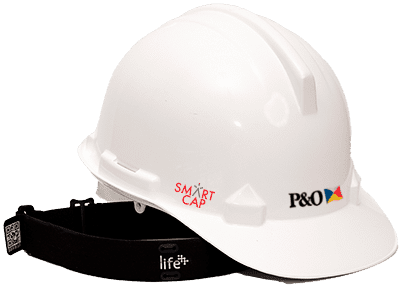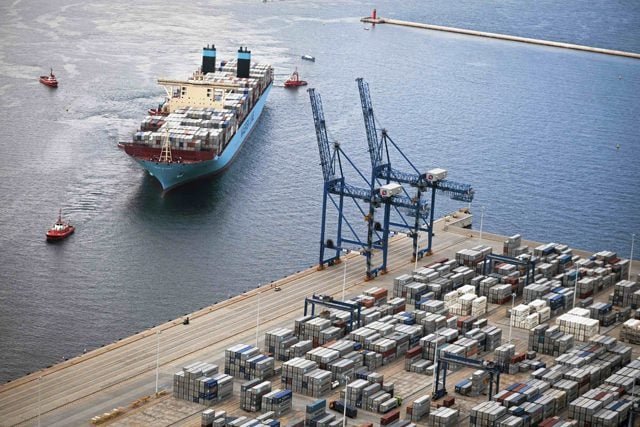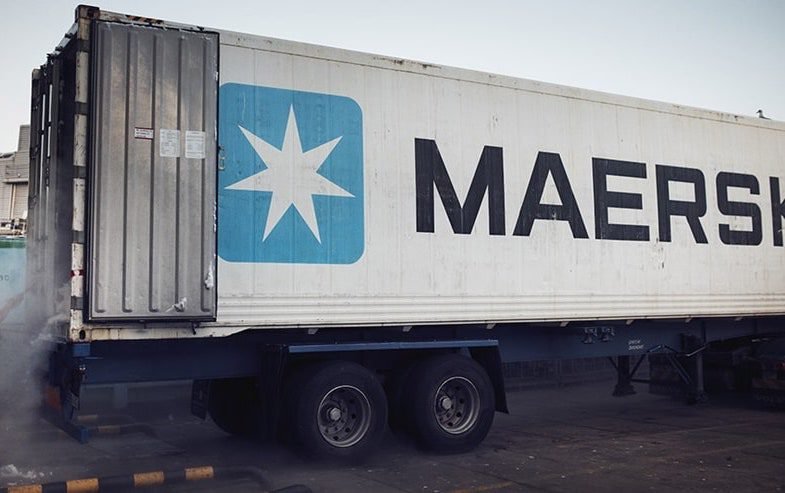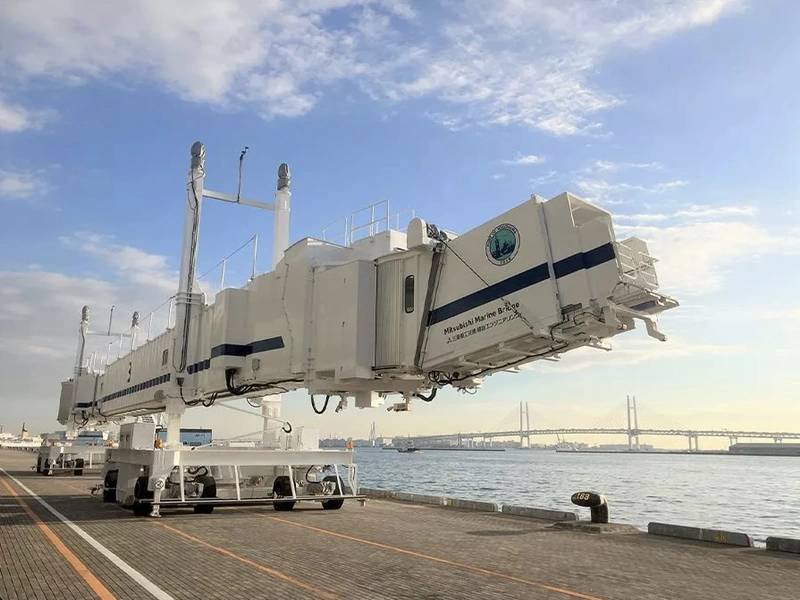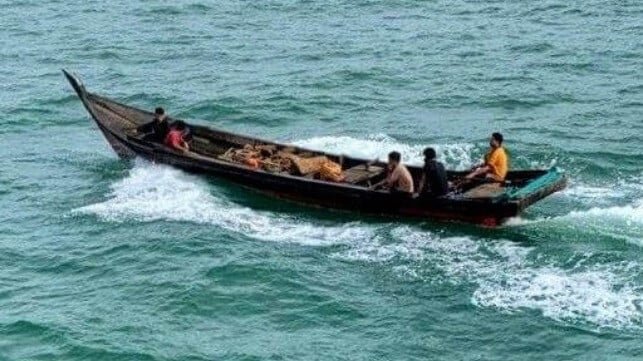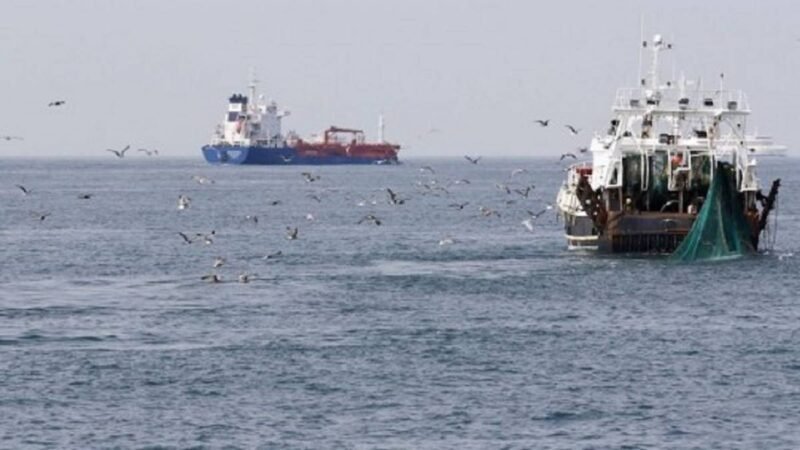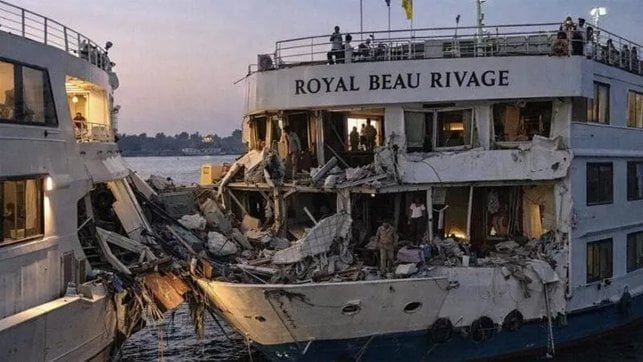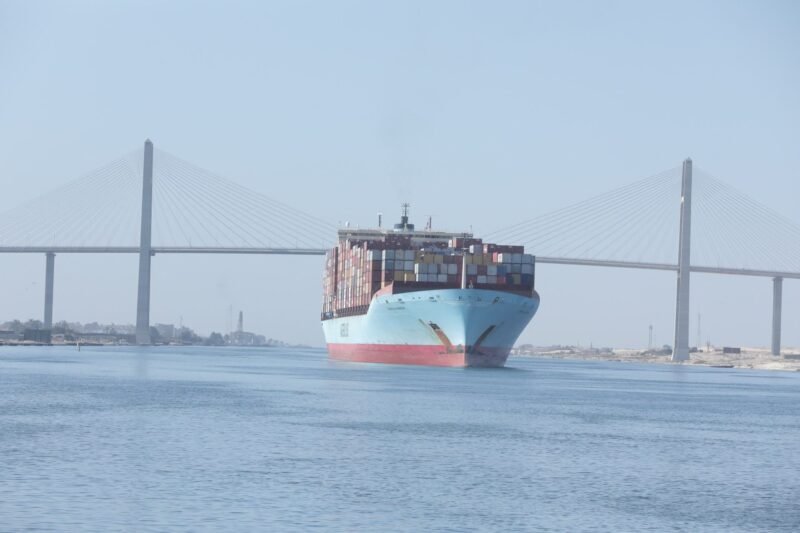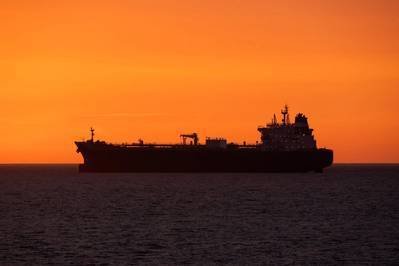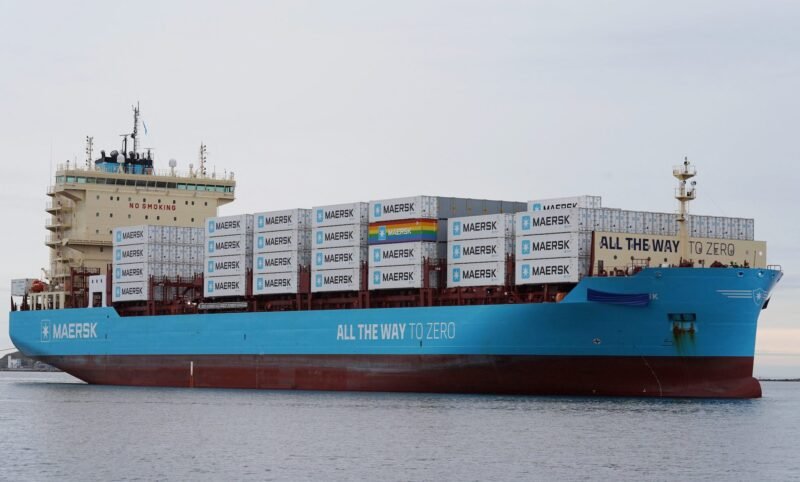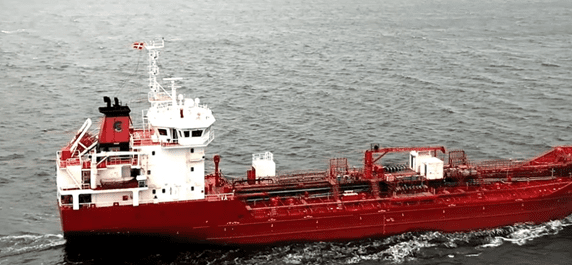Following Stories in this News Digest for the week from 20 Sep 2021 to 26 Sep 2021 in descending order:
- First glimpses of Cordelia luxury cruise liner as it sets sail on Indian seas
- Container freight rates stabalise after 22 weeks of increases
- Liquid CO2 carriers: The next big thing?
- Vaccination and global cooperation key to solving crew change crisis
- The gigantic boat that can carry cruise ships
- World’s first hydrogen ferry wins Ship of the Year award
- Top global companies call for zero emissions shipping by 2050
- Nigeria, Denmark Collaborate on Fight against Piracy
- World’s 1st green tech shipping ETF launched
- P&O launches Industry-first SmartCap Fatigue Management System
- Drones Find Possible Sulfur Violations on Ships Near Gibraltar
- Remotely Operated Rescue Vessel for Offshore Wind and Energy Sectors
- Maersk Heading to Biggest Profit in Danish History
- Indian Seafarer Kidnapped Two Weeks Ago Remains Missing
- Liberia Pushes for Seafarers Welfare
- Baltic Index Rallies to 12-Year High on Gains Across Vessels
- Another cyber attack challenges CMA CGM
- India as chair of United Nations Security Council creates record of sorts
- Shipping needs to face social inequality challenge
First glimpses of Cordelia luxury cruise liner as it sets sail on Indian seas
26 Sep. 2021
India’s first indigenous cruise liner, started by Indian Railway Catering and Tourism Corporation (IRCTC) in partnership with private company Cordelia Cruises, has begun operations amid much fanfare.
Cordelia cruise ship vessel arrived from Mumbai and anchored at the shores of Kochi this week, announcing the restart of the tourism business as the COVID-19 condition recovers in the coastal region.

Over 1,200 tourists from different states sailed the luxurious ship MV Empress, owned by Cordelia Cruises, for an on-shore journey after the COVID-19 protocols to learn about the rich cultural identity and heritage of the coastal city.
The luxury cruise liner MV Empress anchored at Cochin Port, Willingdon Island around 5 am and received a grand welcome from the locals with folk music and cultural performance. After that, the visitors were taken to Mattancherry and Fort Kochi. Reference
Container freight rates stabalise after 22 weeks of increases
25 Sep. 2021
Container freight rates have stabilised after 22 consecutive weeks of rises based on Drewry’s World Container Index (WCI).
The WCI published on 23 September remained steady at $10,377.19 per feu, the same level as the week before, however, up 299% year-on-year.

“This comes following the announcement by CMA-CGM and Hapag-Lloyd to put a halt in increment of spot rates as container prices on most trade lanes are at record highs,” Drewry commented.
For Shanghai – Los Angeles the rate remained flat at $12,424 per feu, while Shanghai – Rotterdam saw a marginal $62 increase to $14,356 per feu.
Drewry said that year-to-date the WCI was up $6,888 per feu. Reference
Liquid CO2 carriers: The next big thing?
25 Sep. 2021
With carbon capture and storage (CCS) gaining traction as a technology to reduce the impact of CO2 emissions, maritime transport will play a key role in the CCS value chain. This is is expected to lead to an increasing demand for liquefied CO2 (LCO2) carriers.

In response, Hyundai Hyundai Heavy Industries (HHI) and Korea Shipbuilding & Offshore Engineering CO. (KSOE) have developed a design for a new 40,000-cubic-meter liquified CO2 carrier design. This week, the design was granted an Approval in Principle (AiP) by classification society DNV and the Liberian International Ship & Corporate Registry (LISCR)
At 40,000 cubic meters, the design is seen as a milestone in an emerging vessel segment where current carriers are limited to less than 2,000 cubic meters. Reference
Vaccination and global cooperation key to solving crew change crisis
24 Sep. 2021

The panel – an Industry dialogue: proactive and practical solutions for the crewing crisis – held on the third day of Sea Asia 2021 sought to find solutions to the crew change crisis beyond the actions of individual companies, and even those of individual states. It was chaired by David Loosley, Secretary General and CEO of Bimco, who said: “Despite the challenges our industry, of course, has adapted to the unpredictability, the everchanging landscape and implemented some very clever workaround solutions. But this is a temporary way of working, it is not sustainable.”
In terms of ensuring both safer crew change and working environment for seafarers vaccination has been regarded as key for some time now, however, as of the start of September just 21.9% of seafarers had been vaccinated according to the Neptune Indicator monthly study. Reference
The gigantic boat that can carry cruise ships
24 Sep. 2021
Few man-made movable structures are larger than a modern cruise ship, but even those giants of the sea sometimes need someone to lend them a hand to get to port.

World’s first hydrogen ferry wins Ship of the Year award
23 Sep. 2021
The green energy enthusiasts have good news, the world’s first hydrogen-powered ferry HYDRA has won the Skipsrevyen’s Ship of the Year award. Norway’s Minister of Transport and Communications Kunt Arild Hareide presented the award onboard MF HYDRA on 8th September in Hjelmeland.

Minister Hareide said that MF HYDRA is a marvelous display of climate-friendly innovation created with the best collaboration of business and authorities. He added that the investment made by the government in green ferries through tender requirements and the Government’s support for alternative fuels and electrification is now bearing fruits. He emphasized upon the capitalization of green technology lead that Norway has gained to benefit the Norwegian shipyards, suppliers, and shipping companies. Reference
Top global companies call for zero emissions shipping by 2050
23 Sep. 2021
More than 150 leading companies and organisations including oil majors and port authorities on Wednesday called for the global shipping industry to be fully decarbonised by 2050, urging governments to step up action warning time was limited.
With about 90% of world trade transported by sea, global shipping accounts for nearly 3% of the world’s CO2 emissions and the sector is under growing pressure to get cleaner.

UN shipping agency the International Maritime Organization (IMO), has said it aims to reduce overall greenhouse gas (GHG) emissions from ships by 50% from 2008 levels by 2050, but industry groups are calling for accelarated action from governments.
In the latest initiative companies and groups – from shipping, chartering, finance, ports, and fuel production – say stronger measures are needed to ensure the sector will meet the climate goals set by the Paris accord, which seeks to limit global warming to less than 2 degrees Celsius. Reference
Nigeria, Denmark Collaborate on Fight against Piracy
23 Sep. 2021
The Federal Government has expressed its willingness and readiness to collaborate with the Danish government to fight piracy in the Gulf of Guinea.

Minister of Foreign Affairs, Geoffrey Onyeama and the Foreign Minister of Denmark, Jeppe Kofod, made this known at the ongoing 76th United Nations General Assembly (UNGA) in New York, United States.
Onyeama said the renewed effort by both governments took place during a bilateral meeting between him and Minister of Denmark.
He said apart from the Gulf of Guinea, Denmark has been very supportive in the area of humanitarian assistance in the North-East regarding the Internally Displaced Persons (IDPs). Reference
World’s 1st green tech shipping ETF launched
23 Sep. 2021
On Tuesday, ETF Managers Group LLC (ETFMG®), leading exchange traded fund issuer, announced that the ETFMG Breakwave Sea Decarbonization Tech ETF (NYSE Arca: BSEA) will begin trading on the New York Stock Exchange. BSEA is designed to provide investors access to a diversified set of global companies involved in actively reducing the environmental impact of the global maritime sector, including those that develop technologies, manufacture equipment, or provide services related to marine or ocean decarbonization.

The shipping industry accounts for roughly 3% of global carbon emissions, or around 1 billion metric tons of greenhouse gases emitted yearly. Without further action, shipping emissions are expected to surge. BSEA provides exposure to dynamic and pioneering companies involved in developing and commercializing technologies that could benefit from the growth of new sector initiatives aiming to combat the environmental impact of the global maritime sector. This includes companies involved in cleaner propulsion (including alternative fuels, batteries, and fuel cells), carbon capture technologies, and offshore wind development. Reference
P&O launches Industry-first SmartCap Fatigue Management System
22 Sep. 2021
Recently, P&O Maritime Logistics began Phase 1 of its implementation of wearable technology that proactively prevents microsleeps and supports workers in managing their fatigue — an industry first, and a boon for safety in maritime services.
SmartCap from Wenco International Mining Systems, a wholly owned subsidiary of Hitachi Construction Machinery, has previously been used in the mining and trucking industries to eliminate safety incidents due to fatigue. P&O Maritime is testing the effectiveness of this technology to bring leading-edge safety to their operations and customers.

The wearable technology actively monitors real-time fatigue levels of employees, sensing when a worker has reduced ability to resist sleep. The system then activates an alert system, notifying the wearer to take action to prevent a safety incident. SmartCap works independently but has been designed to complement existing safety technologies and protocols common throughout heavy industry. Companies that have used SmartCap as part of their safety protocols have reported a significant decline in the number of fatigue-related incidents.
Embracing new and emerging technologies is part of the innovative mindset at P&O Maritime Logistics. Enacting practical digitalisation in its business is leading to disruptive change within the industry – both for customers and employees. Reference
Drones Find Possible Sulfur Violations on Ships Near Gibraltar
22 Sep. 2021
Spanish authorities in conjunction with the European Maritime Safety Agency (EMSA) are deploying drones over the busy shipping lanes at the Strait of Gibraltar to monitor the level of sulfur oxides being released by ships sailing in one of the world’s busiest shipping lanes. EMSA said the program, which is an expansion of similar efforts previously conducted in Northern Europe’s special designated emission control areas, has identified nearly 10 percent of the ships transiting the Strait of Gibraltar for further inspection for possible breaches in the current sulfur regulations.

EMSA’s remotely piloted aircraft (RPAS) has been carrying out daily two flights with an average of ten inspections per day in an operation under the direction of the Spanish Ministry of Transport, Mobility and Urban Agenda. Carried out by the Spanish General Directorate of Merchant Marine the program began flights in mid-July from a base in Tarifa and will continue until the end of October.
According to a report from EMSA, current figures indicate that a total of 294 were monitored and 27 were found in possible breach of the 0.5 percent limits of sulfur content in their fuel. The measurements and records are automatically encoded in the information exchange system which triggers an alert in the EMSA THETIS-EU database. While EMSA notes that this does not confirm non-compliance directly, it does help port authorities target ships for inspection and proceed with the lab testing necessary for confirmation of the fuel composition. Violations can lead to eventual sanctions. Reference
Remotely Operated Rescue Vessel for Offshore Wind and Energy Sectors
22 Sep. 2021
As the offshore sector expands into increasingly challenging environments, a Scottish start-up is developing a complete lifesaving system that can be used in the offshore energy sector, including wind farms. The prototype design developed by Zelim in partnership with naval architect Chartwell Marine is a first-in-class remotely operated rescue vessel that the companies believe can greatly expand the rescue capabilities for these offshore locations.

“As offshore wind continues to scale up to meet the growing global demand for clean energy, ensuring the safety of seafarers and technicians is critical,” said Sam Mayall, founder of Zelim. “That’s why we are working with Chartwell Marine and other industry partners to develop a cohesive offshore survival system, beyond the vessel itself, engaging with operators and regulators to make sure it is fit to save lives in some of the most challenging conditions imaginable.”
Offshore energy sites present a hazardous environment for personnel and vessel crews, where there is always a risk of man overboard (MOB) incidents says Zelim. However, they believe that the traditional approaches to search and recovery are unsuitable for many offshore facilities. Reference
Maersk Heading to Biggest Profit in Danish History
22 Sep. 2021
A.P. Moller-Maersk A/S is now heading for a full-year profit that will match its combined results from the past nine years and make business history in its home country Denmark.
A combination of several extreme factors — including bottlenecks caused by pandemic consumption — is boosting earnings at the world’s largest shipping line. The company last week raised its financial guidance for the third time in five months.

Maersk’s 2021 result will be a record in Danish corporate history, according to a note published on Tuesday by Sydbank A/S analyst Mikkel Emil Jensen. It will be about three times higher than Maersk’s previous record in 2014 and more than double the 2020 result of Novo Nordisk A/S, Denmark’s most valuable company.
Net income will reach about $16.2 billion in 2021, according to the average estimate of seven analysts surveyed by Bloomberg after the Sept. 16 profit upgrade. That’s up from an average estimate of about $3 billion at the beginning of the year. Reference
Indian Seafarer Kidnapped Two Weeks Ago Remains Missing
21 Sep. 2021
On 5 September 2021, a group of six pirates attacked MV TAMPEN, a vessel owned by Mumbai-based Prince Marine Transport. The ship was en route to the UAE and was attacked while being anchored in Gabonese waters due to a malfunction in the propulsion system onboard. The pirates managed to abduct the Second Engineer of the ship, Pankaj Kumar.

The group of 6 reportedly attacked and shot two seafarers as well. They attacked when the ship had to be anchored about two kilometers away from the Gabonese port of Owendo anchorage.
The vessel was originally headed to UAE from Cameroon but was diverted to Owendo for necessary repairs, with it being the nearest port.
It has now been 14 days since Kumar was abducted and there has been no information on his whereabouts. His brother, Sandeep Kumar has written to India’s Prime Minister- Narendra Modi, and the Ministry of External Affairs’ offices without success. He has also tried contacting the shipping company Proactive Shipping Management, which has thus far failed to be proactive about the situation.
He also spoke with John Rupchandani, Honorary Consul of India in Gabon, who reiterated that the search for his brother was carried on by Gabonese officials. Reference
Liberia Pushes for Seafarers Welfare
21 Sep. 2021
Liberia’s Permanent Representative to the International Maritime Organization (IMO) Moses Owen Browne has called for a concerted effort from all and sundry to ensure that seafarers are protected and their welfare improved.
In his address at programs commemorating the London International Shipping Week under the auspices of the Seafarers Rights International, Browne reminded maritime stakeholders about the significant role played by Seafarers in global trade emphasizing the need to improve their security and safety.

“It is important to note that Seafarers’ Welfare is an often-overlooked aspect of international shipping, and this must stop,” he sounded. That is why, he said, the well-being of seafarers serving on Liberian registered ships is a cardinal concern of the Government of Liberia.
As a country with immense international maritime capacity, Liberia, he mentioned believes in protecting the welfare and the rights of the seafarers onboard its ships. “This is a duty we owe seafarers working onboard our ships and to humanity at large. We can also proudly say that without the jealous protection of the rights of seafarers, the Liberian registry would not be as attractive as it is to responsible shipping lines across the world,” he said.
“This is not something to which Liberia simply pays lip service. We want all seafarers to be safe and happy,” he indicated. The Liberian registry, he lamented, has launched an online Seafarer Complaint procedure which allows seafarers to submit any complaints they might have using a form-based template. The Liberian Government, through the Liberia Maritime Authority, will follow up with individual seafarers who use this process, and it will provide any necessary guidance and recommendations. Reference
Baltic Index Rallies to 12-Year High on Gains Across Vessels
21 Sep. 2021
The Baltic Exchange’s main dry bulk sea freight index rose to a 12-year high on Monday, as rates across vessel segments jumped on robust demand and global shipping constraints.

* The overall index, which factors in rates for capesize, panamax, supramax and handysize vessels, rose 29 points at 4,304, its highest since Nov. 24, 2009.
* Analysts have attributed the recent rally in the dry bulk market to global shipping constraints and an overall rebound in commodities demand.
* “Dry bulk ships are spending a lot more time waiting outside of ports, both because there are so many ships and also due to the new (pandemic-led) quarantine measures around the world,” said Emily Stausboll, shipping analyst at BIMCO, that adding various economic stimulus measures are also helping dry bulk demand. Reference
Another cyber attack challenges CMA CGM
21 Sep. 2021
CMA CGM has suffered another cyber attack in less than one year from the previous security breach, which hit the company’s peripheral servers and caused severe challenges in its Information Technology (IT) infrastructures.

The French shipping group has announced that a leak of data on limited customer information (first and last names, employer, position, email address and phone number) has been detected during its surveillance operations on the company’s Application Programming Interfaces (APIs).
“Our IT teams have immediately developed and installed security patches,” said CMA CGM in its announcement.
Cyber attacks are evolving into one of the most dangerous threats of the industry. Reference
India as chair of United Nations Security Council creates record of sorts
20 Sep. 2021
After a decade India become a non-permanent member of the United Nations Security Council for 2021-22 by securing a record 184 votes from a maximum of 193 countries. This is the eighth time India has been part of the highest decision-making body at the UN. While its the 75th year of the UN, this year also coincides with India’s 75th year of independence.

With the summer holidays in many countries, August is normally a quiet month with empty tables at the UN, added to this was the ongoing impact of the COVID-19 pandemic which despite all protocols has had a major impact on normal activities. As it turned out it was not the case in the Security Council this August. Fourteen “Outcome Documents” five of which resulting in UNSC resolutions was a great feat. For the record, the last time a similar number of “Outcome Documents” was achieved in June last year.
The three main issues in front of the UNSC were – maritime security, peacekeeping and counter-terrorism. All the three are very important for India and found reinforcement not just within the Security Council but with the members at large.
Cargo vessels crisscrossing the seas are the target and unarmed seafarers become the victims of kidnapping, captivity for an extended period and it sometimes proves fatal. Ships are exposed to the heightened threat perception when they sail from India and move towards the Suez Canal. Hence getting this resolution was very crucial.
India worked closely with all UNSC members to achieve a consensus in the adoption of the statement which included UN Convention on Law of the Sea; terrorism; piracy; freedom of navigation; arms and human trafficking; stronger regional and international cooperation amongst others. Reference
Shipping needs to face social inequality challenge
20 Sep. 2021
The World Economic Forum was right to place COVID’s damage to progress on poverty and inequality at the top of its risk register, said Peter Holbrook CBE, Chief Executive, Social Enterprise UK. Beyond its social impacts, inequality is a threat to business.

“We know that the growing wealth inequality drives a whole range of precarious outcomes. It can increase issues of populism and mistrust in international institutions, it can undermine the very principle of meritocracy, the idea that we’re born into a world where if we work hard, we can achieve wonderful things.”
Stephen Cotton General Secretary, International Transport Workers Federation (ITF) said: “We are challenging our comprehension of what is the right way and what is best practise, because those challenges are very different depending where you sit in economic opportunity.”
The panel said the social impact of shipping was part of a wider debate on building a better society, and that there were actions companies could take to improve their impact on the communities they serve and rely on. Reference
Note: The above news should be considered as a brief news. For detailed news, one should refer to reference link, mentioned with each item.
Share it now

